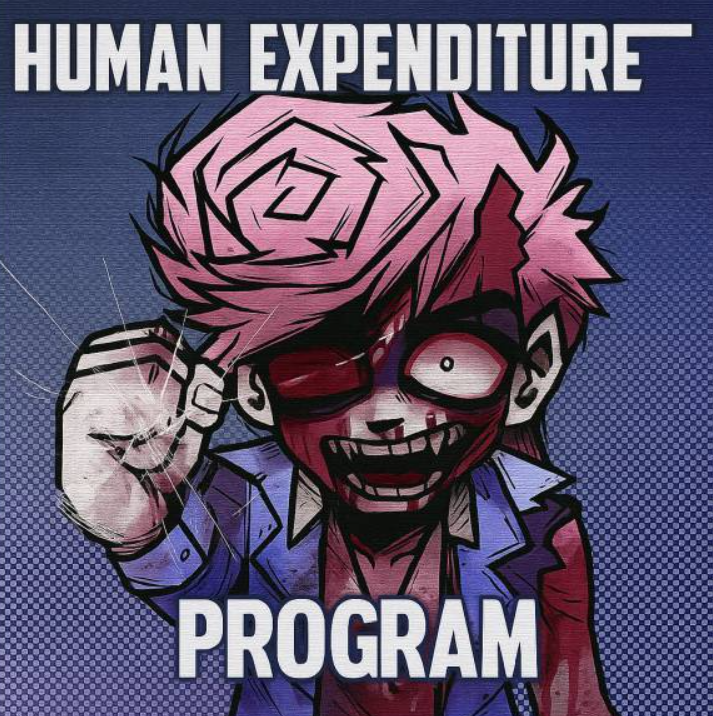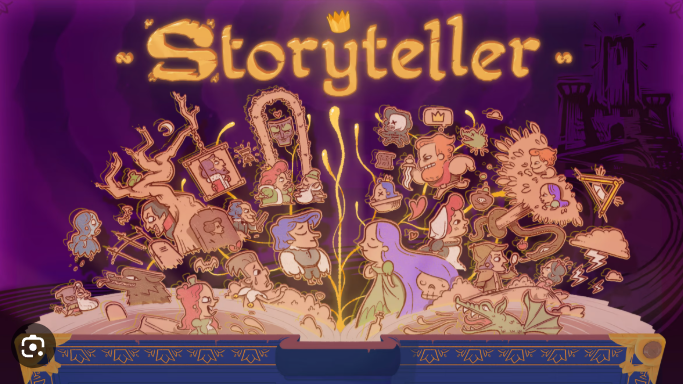The Human Expenditure Program isn't just another indie game you'll forget after a weekend playthrough. This psychological simulation forces players into an ethically charged scenario where you're responsible for Harvey Harvington's survival – and every decision carries permanent weight.
What makes this game particularly striking is its deceptive simplicity. You start with basic care mechanics – feeding, interacting, managing needs – but quickly realize you're participating in something far more sinister. The "program" becomes a chilling metaphor for systems that treat human lives as expendable resources.
Key Elements That Make This Game Stand Out:
- Memory System: Harvey remembers everything – your kindness, your neglect, your cruelty
- Permanent Consequences: No save-scumming your way out of moral choices
- Multiple Endings: Your treatment of Harvey determines vastly different outcomes
- Psychological Horror: The terror comes from recognizing your own complicity
- Voice Acting: Dexter Manning brings Harvey to life with authentic, unsettling responses
The brilliance lies in how the game transforms routine interactions into moral dilemmas. Each click becomes a choice between efficiency and empathy. Feed Harvey regularly, and he trusts you. Ignore his needs, and watch him deteriorate – physically and emotionally.
This isn't entertainment in the traditional sense. It's an interactive examination of power dynamics, surveillance, and human expendability. The horror emerges not from jump scares but from the gradual realization that you've become the architect of someone's suffering.
What is Human Expenditure Program?
Human Expenditure Program stands as one of the most unsettling indie games I've ever encountered. Developed by ShroomyChrist Studios, this title—also known as BloodMoney 2—forces us into a role we never expected: caretaker of a human being named Harvey Harvington. Unlike typical pet sims where we feed virtual cats or dogs, this game places a man's survival directly in our hands.
The premise hits differently because Harvey isn't some cute creature. He's a person with thoughts, feelings, and memories. When I first launched the game, I expected something light and casual. Instead, I found myself staring at a confined space where every click carries weight. The "program" mentioned in the title remains deliberately vague—is it a corporate experiment? A scientific trial? The ambiguity forces us to focus on what matters: our choices and their consequences.
What makes this experience so powerful is how it starts simple. We feed Harvey, talk to him, maybe play a small minigame. These actions feel routine at first. But the game's memory system ensures nothing gets forgotten. If I neglect Harvey's needs or make him suffer, he remembers. That memory creates a permanent record of my decisions, turning casual gameplay into something much heavier.
The confined setting amplifies this tension. There's no vast world to explore, no other characters to manage. Just Harvey and the system that governs his existence. This narrow focus makes every interaction feel crucial. We can't escape into side quests or distractions. The game demands we confront our role as Harvey's keeper, and that responsibility weighs on us throughout the entire experience.
How to Play Human Expenditure Program
Basic Interaction System
- Feeding Harvey: Click on food items to give them to Harvey. Watch his reactions carefully—they tell us about his current state and needs.
- Communication: Talk to Harvey through dialogue options. His responses change based on our previous actions and his current mood.
- Minigames: Participate in small interactive challenges that test timing and decision-making skills.
- Rest Management: Ensure Harvey gets adequate sleep by managing his daily schedule.
The game's interface stays minimal by design. We won't find complex menus or overwhelming options. Instead, everything centers on direct interaction with Harvey. This simplicity serves the game's purpose—keeping our focus on the human element rather than getting lost in mechanics.
Understanding the Memory System
Harvey remembers everything. This isn't just a gameplay feature; it's the heart of the experience. When I treat him well, he shows trust and gratitude. When I make poor choices, his behavior shifts toward fear or resignation. These changes persist throughout the entire playthrough, creating a sense of permanent consequence that most games lack.
Progression and Choices
Unlike traditional games with clear objectives, Human Expenditure Program presents us with moral decisions disguised as routine tasks. Do we feed Harvey the good food or save money? Do we force him through uncomfortable situations for our curiosity? Each choice shapes not only Harvey's wellbeing but also which ending we'll eventually see.
The game tracks our decisions through subtle systems. We won't see obvious morality meters or karma points. Instead, Harvey's reactions and the story's direction reflect our treatment of him. This organic feedback system makes every playthrough feel personal and meaningful.
Features of Human Expenditure Program
The Human Expenditure Program distinguishes itself through carefully crafted features that work together to create an unforgettable experience. Each element serves the game's central theme of human responsibility and consequence.
Interactive Care System
The care mechanics go beyond simple resource management. When we feed Harvey, we're not just filling a hunger meter—we're making a choice about his quality of life. The game offers different food options, each with its own implications.
Cheap food keeps Harvey alive but shows our lack of care. Better meals demonstrate investment in his wellbeing. These choices accumulate over time, influencing Harvey's trust and the story's direction.
Advanced Memory Tracking
Harvey's memory system represents the game's most innovative feature. Unlike other simulation games where mistakes can be easily corrected, Human Expenditure Program makes every action permanent in narrative terms.
If we ignore Harvey's pleas for help, he won't forget that abandonment. If we consistently show kindness, he develops trust that affects future interactions. This system creates genuine emotional stakes that persist throughout the entire experience.
Multiple Ending Pathways
The game features several distinct conclusions based on our treatment of Harvey. These aren't simple "good" or "bad" endings—they're complex reflections of our choices throughout the program.
Even positive outcomes carry an unsettling undertone, reminding us that participating in the system has already changed both Harvey and ourselves.
Voice Acting and Audio Design
Dexter Manning's voice work as Harvey adds crucial authenticity to the experience. His delivery ranges from grateful appreciation to quiet desperation, depending on our actions.
The audio design supports this emotional range with subtle environmental sounds that enhance the confined atmosphere without overwhelming Harvey's voice.
Atmospheric Tension
The game maintains constant underlying tension through its visual and audio design. Light moments of connection with Harvey are always shadowed by the knowledge that we're participating in something ethically questionable.
This balance keeps us engaged while forcing reflection on our role in Harvey's situation.
| Feature | Purpose | Impact on Player |
|---|---|---|
| Memory System | Permanent consequences | Creates lasting responsibility |
| Voice Acting | Emotional authenticity | Builds empathy with Harvey |
| Multiple Endings | Reflects player choices | Encourages moral reflection |
| Minimal Interface | Focus on interaction | Prevents distraction from themes |
Similar Games
FAQs of Human Expenditure Program
What makes Human Expenditure Program different from other simulation games?
Human Expenditure Program differs from typical simulation games by focusing on a human subject rather than pets or abstract entities. The game's memory system ensures that Harvey remembers every interaction, creating permanent consequences that can't be undone through reloading saves. This design choice forces players to confront the moral weight of their decisions in ways that traditional simulators avoid.
How many endings does the game have?
The game features multiple endings that reflect the player's treatment of Harvey throughout the program. While exact numbers aren't officially documented, players have reported at least two main pathways with several variations. The "good" ending typically results from consistent care and empathy, while the "bad" ending emerges from neglect or exploitation. However, even positive conclusions carry unsettling implications about the nature of the program itself.
Is Human Expenditure Program suitable for all players?
This game deals with mature themes including human exploitation, psychological manipulation, and moral responsibility. Players who prefer lighthearted simulation games or those sensitive to themes of human suffering should approach with caution. The game's psychological horror elements emerge from reflection rather than traditional scares, making it more suitable for players interested in narrative depth and moral complexity.
Can I replay the game to see different outcomes?
Yes, the game encourages multiple playthroughs to explore different decision paths and endings. Each playthrough offers opportunities to experiment with different approaches to Harvey's care, from protective nurturing to curious experimentation. However, the memory system means that each run carries emotional weight, as players must witness the consequences of their choices regardless of their intentions.
How long does it take to complete Human Expenditure Program?
The game's length varies depending on player approach and exploration of different endings. A single playthrough typically takes 2-4 hours, but the game's design encourages multiple runs to fully understand its themes and see all possible outcomes. The relatively short length serves the game's purpose, maintaining tension without overstaying its emotional impact.
What themes does the game explore?
Human Expenditure Program examines several interconnected themes: the exploitation of individuals within larger systems, surveillance and control mechanisms in modern society, personal responsibility and complicity in harmful systems, and the lasting effects of trauma and memory. These themes work together to create commentary on how easily human life can be reduced to data points within bureaucratic or corporate structures.
"The horror lies not in monsters or jump scares, but in the gradual realization that we are complicit in reducing a human life to mere mechanics and data points."
Are there any similar games to Human Expenditure Program?
While the game shares some mechanical similarities with pet simulators and choice-driven narratives, its unique combination of human subject matter, permanent consequences, and moral complexity sets it apart. Games like Papers, Please explore similar themes of bureaucratic complicity, while titles like Stanley Parable examine player agency and choice. However, Human Expenditure Program's focus on direct care of a human character creates a more intimate and unsettling experience than these comparisons.
What should new players know before starting?
New players should understand that Human Expenditure Program isn't a traditional game focused on winning or optimization. Instead, it's an interactive experience designed to provoke reflection on moral choices and human responsibility. The game's memory system means that mistakes have lasting consequences, so players should be prepared for the emotional weight of their decisions. Approaching the game with openness to its themes rather than trying to "beat" it will lead to a more meaningful experience.



















